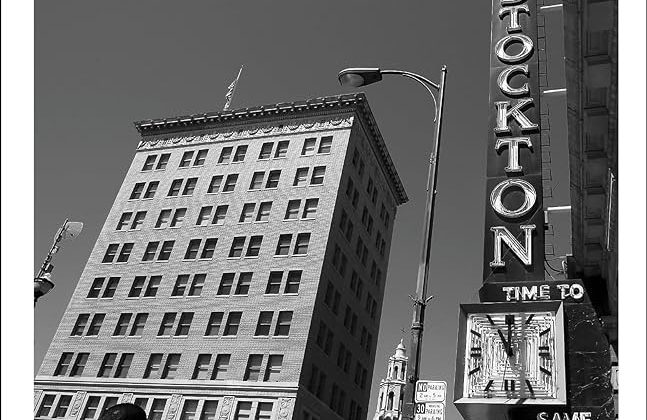

Brian Judge is a Policy Fellow at the Center for Human-Compatible AI at the University of California, Berkeley. This interview is based on his new book, Democracy in Default: Finance and the Rise of Neoliberalism in America (Columbia University Press, 2024).
JF: What led you to write Democracy in Default?
BJ: The project began with an dissatisfaction with the established explanations of inflation in the 1970s. Both orthodox economists and neo-Marxists appeared to agree on the same basic explanation: a wage-price spiral accommodated by the Federal Reserve that marked fatal weaknesses in the postwar order. Though they clearly disagreed about the causes and consequences of that crisis, its basic contours were shared. This seemed to me to be both intellectually and politically curious. The project quickly grew from there into a new way of framing the origins of “neoliberalism.” It became clear to me that ideology wasn’t driving the neoliberal bus. I used to work for a large hedge fund where I saw the operation of finance up close. I had a strong intuitive sense that the pressures imposed by finance mapped neatly onto the otherwise dizzying variety of things scholars have labeled as “neoliberal.”
I wanted to explain why political bodies of all kinds turn to finance and financial markets to resolve conflicts over scarce resources. This led me deep into the liberal tradition to frame the problem in terms of depoliticizing distributive conflict: the general condition of liberal citizenship in which subjects vie for increasing shares of the social product. Liberalism is premised on shunting these otherwise destabilizing and intractable conflicts from the public sphere to a supposedly impartial mechanism that enables cooperation without coercion (i.e. “the market”). Liberalism doesn’t abolish distributive conflict but depoliticizes it. In the case studies explored in the book, I found that finance was a key mechanism for sustaining that depoliticization. Once financialized, that political body is reoriented around the need to generate monetary return. Financialization thus deploys neoliberalism.
JF: In 2 sentences, what is the argument of Democracy in Default?
BJ: The book argues that the dramatic political economic transformations of the last four decades originate from deep structural features of liberal government that are at once exposed and intensified by the rise of finance. What has come to be called “neoliberalism” indexes the transformations in liberal government wrought by finance.
JF: Why do we need to read Democracy in Default?
BJ: We need to understand the political origins of financialization and neoliberalism. Existing accounts confuse cause and effect: financialization was the mechanism that allowed neoliberalism to take root. But financialization was not simply a product of capture or capitulation, but a seemingly obvious solution to a pressing crisis.
This foundational avoidance of zero-sum distributional decisions is at the core of western political institutions. The mechanisms that have allowed us to avoid such decisions are failing. I think a large degree of what American political scientists have come to call “polarization” expresses this foundational problem. Simply asserting a countervailing policymaking orthodoxy is insufficient.
JF: Why and when did you become an American historian?
BJ: I should confess that my training is in Political Science and not History. I have always found the divide between History and the Social Sciences puzzling. In my view, “history” is what “social science” is supposed to explain. In my ideal world, there would be a more symbiotic and collaborative relationship between the two fields and the sharp divisions between them would become less relevant.
JF: What is your next project?
BJ: My next book project, Political Climate Change, will explore the challenge of responding to climate change within the confines of liberal distributive politics. Climate change threatens limitless economic growth and thus the prevailing regime of liberal distributive depoliticization charted in Democracy in Default. Meanwhile, a changing political climate elevates demands from historically marginalized and excluded groups on the left, and from those reacting to perceived displacement by these groups on the right. The next project will explore what political dynamics emerge from this conjuncture. My hypothesis is that the resulting conflicts cannot be resolved within existing liberal political institutions, necessitating various forms of decisionism. Shorn of traditional progress narratives and distributive panaceas, liberal orders are increasingly exposed in their constitutive investment in the well-being of their hegemonic subject. The project will chart both the new techniques for governing these conflicts and the ways in which social movements resist them.
JF: Thanks, Brian!